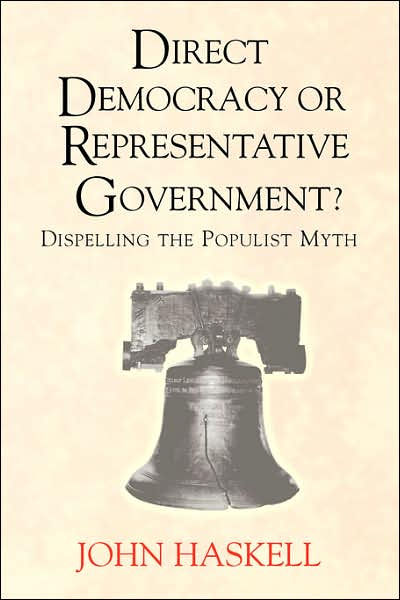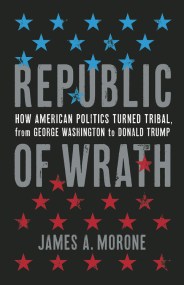Promotion
Free shipping on orders $45+ Shop Now.
Direct Democracy Or Representative Government? Dispelling The Populist Myth
Contributors
By John Haskell
Formats and Prices
Price
$41.00Format
Format:
Trade Paperback $41.00This item is a preorder. Your payment method will be charged immediately, and the product is expected to ship on or around December 29, 2000. This date is subject to change due to shipping delays beyond our control.
Also available from:
In Direct Democracy or Representative Government? John Haskell develops a devastating critique of direct democracy by exposing the central flaw in populist thinking. Contrary to the beliefs of populist advocates of direct democracy, the popular will cannot be interpreted from the results of the plebiscite. John Haskell presents a defense of representative institutions that brings to bear, in an understandable way, the findings of public choice scholars. Haskell covers the clash of ideas between populists and constitutionalists throughout American history. He follows the development of direct democracy during the twentieth century, especially the dramatically increased use of initiatives and referenda in the last decade. As Americans become increasingly frustrated with the workings of the institutions of government at the state and national levels, and as populist ideas gain greater currency, new forms of direct and participatory democracy making use of the latest computer technology appeal to more people. Haskell speculates as to the likely future direction of direct democracy in the U.S. He describes in clear language the fundamental problem with the premise of populist thinking and explains why direct democracy presents a threat to minority rights and only promises irresponsible and unaccountable governance.
Genre:
- On Sale
- Dec 29, 2000
- Page Count
- 224 pages
- Publisher
- Avalon Publishing
- ISBN-13
- 9780813397832
Newsletter Signup
By clicking ‘Sign Up,’ I acknowledge that I have read and agree to Hachette Book Group’s Privacy Policy and Terms of Use







